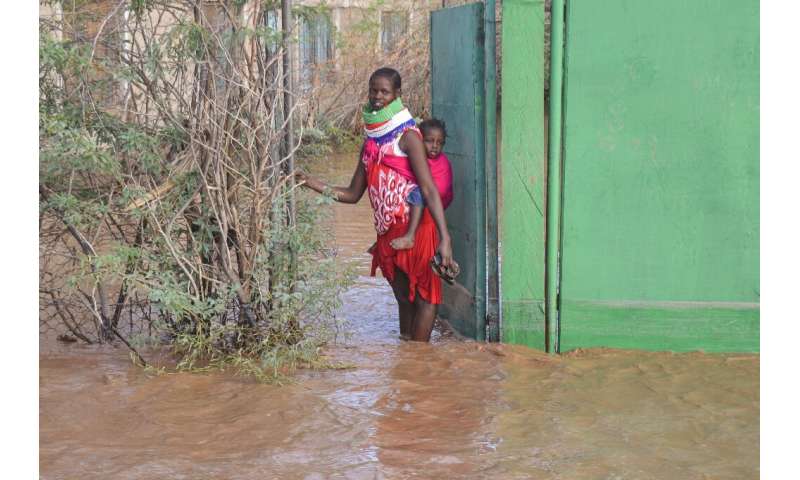
A powerful climate phenomenon in the Indian Ocean
stronger than any seen in years is unleashing destructive rains and flooding
across East Africa—and scientists say worse could be coming. Violent downpours
in October have displaced tens of thousands in Somalia, submerged whole towns
in South Sudan and killed dozens in flash floods and
landslides in Kenya, Ethiopia and Tanzania. Rising waters have wiped out
livestock and destroyed harvests in swathes of the region still reeling from
severe drought. Close to a million people in South Sudan alone are affected,
with growing fears of disease outbreaks and starvation. The extreme weather is
blamed on the Indian Ocean Dipole—a climate system defined by the difference in sea surface
temperature between western and eastern areas of the ocean. At
the moment, the ocean around East Africa is far warmer than usual, resulting in
higher evaporation and moist air flowing inwards over the continent as rain:
the hallmarks of a "positive" dipole. But scientists say the strength
of this dipole is of a magnitude not seen in years, perhaps even decades. These
waters around East Africa are about two degrees warmer than those of the
eastern Indian Ocean near Australia—an imbalance well beyond the norm.

